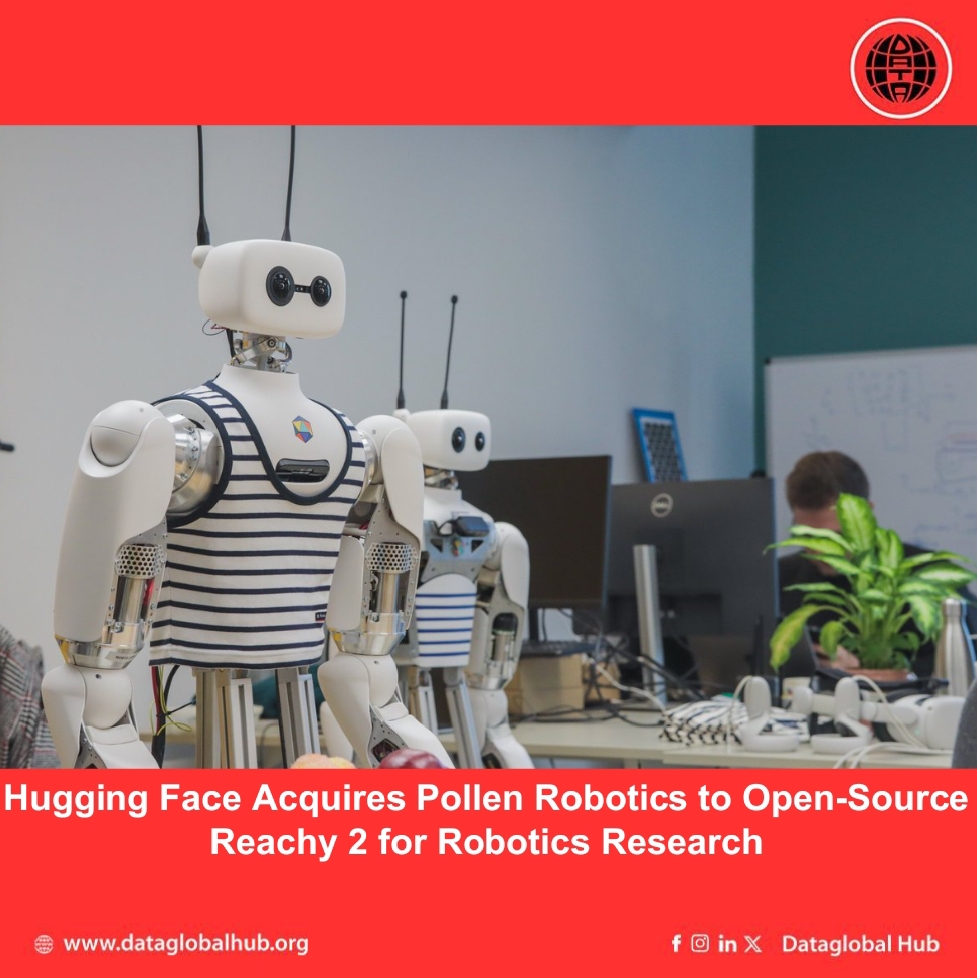
Hugging Face Acquires Pollen Robotics to Open-Source Reachy 2 for Robotics Research
Translate this article
Hugging Face, a leader in open-source artificial intelligence, has acquired Pollen Robotics, the creators of Reachy 2, a humanoid robot designed for research. This week, the companies announced plans to sell Reachy 2 and share its software and hardware designs publicly, inviting researchers to collaborate and advance robotics according to Clement Delangue post on X.
.
A Research Robot with Open Potential
Priced at $70,000, Reachy 2 is a humanoid robot with articulated arms, a movable head, and expressive antennas. Its mobile base supports omnidirectional movement for precise navigation, and it features sensors like cameras, microphones, lidar, and IMUs. Powered by ROS 2 and Hugging Face’s LeRobot platform, it includes a Python SDK for accessible programming.
Reachy 2’s key features include Human-like design, omnidirectional mobility, sensor array, and open-source software and hardware for customization.
Reachy 2 is in use at institutions like Cornell and Carnegie Mellon, as well as several unnamed AI companies, for robotics research and education. Researchers are exploring tasks like object manipulation, as shown in videos where Reachy 2 tidies coffee mugs and picks up fruit.
Transparency Through Open Source
By open-sourcing Reachy 2’s code and hardware designs, Hugging Face and Pollen Robotics aim to foster transparency and collaboration. Developers can modify software or 3D-print parts to improve the robot. “It’s really important for robotics to be as open source as possible,” says Clément Delangue, CEO of Hugging Face as reported by wired.com, emphasizing trust in systems that interact with the physical world.
Matthieu Lapeyre, co-founder of Pollen Robotics, highlights that open-sourcing broadens access in a field often dominated by well-funded companies like Tesla and Agility Robotics. This approach enables researchers and institutions to share and build on advancements.
A Step Toward Future Robotics
With AI advancements driving robotics interest, open-source models can accelerate progress. Sergey Levine, a UC Berkeley professor and co-founder of Physical Intelligence, supports this, noting that accessibility fuels innovation. His startup’s robot foundation model, Pi0, available on Hugging Face, helps robots learn diverse tasks, and Reachy 2’s open design could inspire similar contributions.
Currently a research tool such as Reachy 2 may lay the groundwork for future versions suited for homes, though challenges like cost and reliability remain. Its open-source framework empowers researchers to refine its capabilities and explore new robotics possibilities.
About the Author
Simba Gondo
Recent Articles
Subscribe to Newsletter
Enter your email address to register to our newsletter subscription!